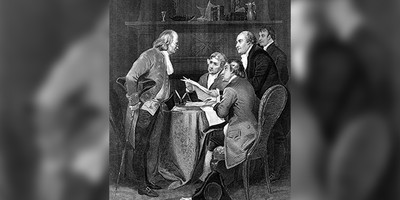The new Audi TDI ad was one of the more provocative commercials shown during the Super Bowl.
The commercial opens with an unsuspecting grocery shopper asking for a plastic shopping bag rather than paper. He is immediately taken into custody by the “Green Police.” As his head is being slammed into the check-out counter the green officer barks, “You picked the wrong day to mess with the eco-system plastic boy!” The spot ends with a long line of cars stopped at an “Eco-check point.” An officer spots the Audi. “TDI here,” he observes. “Clean diesel.” The officer then nods to the driver, “you’re good to go sir.” The driver smiles and then speeds past the traffic jam. The tag line reads: “Green has never felt so good.”
More fascinating than the commercial is the fact that certain environmental Cassandras claim the commercial speaks for them. David Roberts, for instance, writing in the Huffington Post, argues that “the ad only makes sense if it is aimed at people that acknowledge the moral authority of the green police.” Indeed the driver never challenges the moral authority of the green police. To the contrary, the Audi driver is actually subordinate to that authority. The driver is only able to by-pass the eco check point because his car passes muster. The message of the commercial is that it is possible to be both stylish and eco friendly.
My question to those “that acknowledge the moral authority of the green police”: from where does that authority come? The question is rarely asked by the likes of Roberts because they don’t like the answer.

There are certain universal, objective and immutable truths to which all men are bound. These truths do not come to us through law, statutes or even science, but are instead the gift of divine revelation. It is in order to protect these truths that societies create institutions. The lengths through which our institutions go in conserving and furthering these truths can only be discovered through a process of rational and prudent deliberation. Science is but one of those processes.
Recommended
We recognize for instance and all of society generally agrees that it is a good thing to arrest, prosecute and fine (or imprison) those that dump poisons into our waters and public lands (not specifically designated for such dumping). The commercial resonates because we tend to blanch at the idea of green police marching fathers from their homes for using incandescent light bulbs (the disposal of which, by the way, does not require that one open windows and don a hazmat suit). The left argues the moral authority for such “eco tactics” stems from the fact that curbing our production of man-made carbon will save the planet. Unfortunately, while the evidence of the dangers of poisons in our landfills is quite clear, the evidence that man-made carbon is causing the earth to warm – er uhm I mean the climate to change – grows less and less persuasive.
Far from recognizing the moral authority of the green police, as outrageous fantasy creeps ever closer to being a reality -- (Note to Audi: it stops being satire when it is true)--the commercial perceives the opposite.
Consider that the British parliament is already considering something called, “Domestic tradable quotas” or personal energy rationing. Here’s how it would work: every resident would receive a carbon credit card containing an identical allocation of carbon units. The number of points would be reduced each year in line with the government’s carbon reduction goals. Each time a resident used carbon based energy he/she would have to swipe his card and have a number of DTQ points deducted from their card. Heavy DTQ users would be able to purchase extra points from low DTQ users and no doubt those unable or unwilling to purchase extra points would be fined and jailed. Because almost every activity we engage in involves some sort of carbon production – writing this column on my computer for instance, washing dirty clothes, eating meat…breathing! --it isn’t difficult to imagine the political shenanigans that will accompany a policy prescription that is gaining traction among environmentalists.
Recall that during the presidential election of 2000 Democratic nominee Al Gore was asked the question: “paper or plastic?” Laughter ensued as the climate guru struggled to correctly answer the very question for which the hapless shopper at the beginning of the commercial was arrested.
Thus what we learn from Audi is that the green police are more concerned with power over peoples lives (for power one appeals to politics; it is the absolute wrong place to go looking for morality), which is why it is politics not science, reason or sadly common sense that has driven the question of anthropogenic global warning.

























Join the conversation as a VIP Member